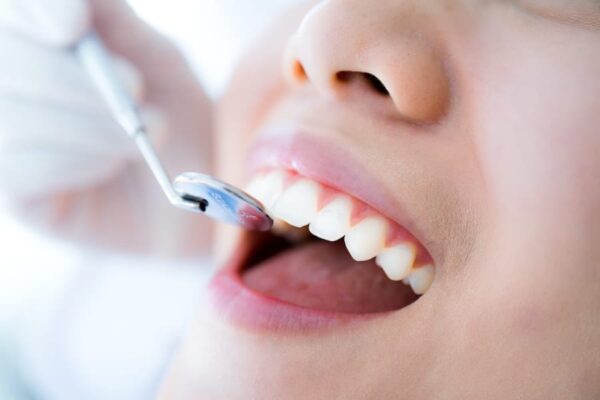If the idea of sitting through a dental procedure makes you nervous, you’re not alone. IV Dental Sedation can be a great option for those who need a little more help feeling relaxed or staying calm through treatment, or for patients with complex needs. If you’re considering IV sedation for your dental procedure, you may be wondering which medications are used, what to expect, and what side effects to look out for.
While several different medications can be used for IV sedation, your provider will choose the best drug (or combination) based on your overall health, the procedure being performed, and your comfort level. These medications are carefully selected and administered by trained professionals to make sure everything goes smoothly.
In this guide, we’ll break down the most commonly used drugs for IV sedation and what you can expect if you’re considering this option for your next dental procedure. However, this list isn’t exhaustive, so if you have questions or think sedation dentistry may be right for you, we encourage you to reach out to your dentist or our team at All Smiles Care to discuss your options.
What is IV Sedation and Its Importance in Dentistry?
IV sedation plays a key role in helping patients feel more comfortable and confident about getting the dental care they need. It’s especially helpful if you deal with dental anxiety, have a strong gag reflex, or need a longer or more complex procedure. By delivering medication directly into your bloodstream, IV sedation takes effect quickly and offers a deeper level of relaxation than other sedation methods.
Defining Conscious Sedation
IV sedation is a form of conscious sedation, which means you’ll stay awake during the procedure but feel deeply relaxed and calm. You might feel drowsy or remember very little afterward, but you’ll still be able to respond to your dental team if needed. This type of sedation is ideal for easing anxiety, reducing discomfort, and making your overall experience much more manageable, especially if you typically avoid the dentist due to fear or past negative experiences. This differs from general anesthesia, which would render you unconscious throughout the procedure and comes with additional risks.
Addressing Dental Anxiety and Phobia
Dental anxiety is not one size fits all–some people feel mildly uneasy before a visit, while others experience intense fear that keeps them from going altogether. IV sedation is a tool that can help you feel more in control and less overwhelmed during treatment. By making appointments feel quicker, calmer, and less stressful, IV sedation can improve not just your comfort but also your ability to stay on track with regular dental care, which is key to maintaining long-term oral health.
Common Drugs Used for IV Sedation in Dentistry
When it comes to IV sedation, several different medications can be used to help you feel calm and comfortable during your dental procedure. Each drug has its own unique effects and is chosen based on your health, the complexity of the treatment, and how deeply you need to be sedated. Here’s a closer look at the most common options and how they work.
Midazolam: A Popular Choice
Midazolam is one of the most widely used medications for IV sedation in dentistry. It belongs to a class of drugs called benzodiazepines, which are known for their calming and anti-anxiety effects. When used for sedation, Midazolam typically causes drowsiness and makes you feel relaxed. It can also cause some short-term memory loss, so you may not recall much of the procedure. One of the reasons it’s commonly used is that it takes effect quickly and wears off relatively fast, making recovery smoother for most patients.
Dexmedetomidine: Continuous Comfort
Dexmedetomidine is another option that’s sometimes used for dental sedation, especially for patients who need to stay calm but responsive. This medication is usually administered continuously through an IV drip during the procedure, helping reduce anxiety while still allowing you to communicate if needed. It doesn’t cause as much drowsiness or memory loss as some of the other options, but it creates a sense of calm and can be helpful in longer or more complex procedures when mild sedation is preferred.
Propofol: Administration and Consideration
Propofol is a powerful sedative known for its rapid onset and smooth, short-lived effects. It’s made with ingredients like soybean oil, egg lecithin, and glycerol, so it’s not suitable for people with certain allergies. While Propofol works quickly and can create a very calm, almost sleep-like state, it requires careful monitoring by an anesthesiologist or a highly trained provider, because it can slow down breathing and heart rate. For this reason, it’s less commonly used in dental offices and more often reserved for hospital settings or oral surgery centers.
Ketamine: Effects and Mechanism
Ketamine isn’t a go-to sedative for everyday dental work, but can sometimes be used in special cases or research settings. It’s known for reducing pain and causing a dissociative effect, which means you may feel detached from your surroundings. It also causes amnesia, so you likely won’t remember the procedure. Ketamine works by blocking glutamate, a neurotransmitter in the brain, and its unique effects have made it useful in some situations where other sedatives aren’t a good fit. However, because of its strong and sometimes unpredictable effects, its use in dentistry is still considered experimental.
Safety and Regulatory Aspects of IV Sedation Drugs
Your safety is always the top priority when it comes to IV sedation. That’s why the medications used in dental sedation are carefully regulated and administered by trained professionals who follow strict guidelines. From federal approvals to individual allergy screenings, there are several safeguards in place to make sure your experience is as safe and comfortable as possible.
Food and Drug Administration (FDA) Guidelines
The Food and Drug Administration (FDA) plays a key role in making sure that all IV sedation drugs used in dentistry are thoroughly tested and approved before they ever reach a patient. The FDA also sets regulations on how these drugs should be manufactured, labeled, and monitored. Dental professionals must follow these standards closely, and only use sedation medications in ways that meet FDA guidelines and professional licensing requirements.
Addressing Allergies and Reactions
Before receiving IV sedation, your dental team will review your medical history and ask about any allergies, especially to medications or ingredients. Some IV sedatives, like Propofol, contain additives such as soybean oil and egg lecithin, which can cause allergic reactions in people with certain food allergies. Though serious reactions are rare, it’s important to speak up about any known sensitivities so your provider can choose the safest option for you. Monitoring during sedation also helps catch and respond to any unexpected side effects right away, giving you peace of mind throughout your treatment.
Exploring the Pros and Cons of IV Sedation in Dentistry
IV sedation can be a game-changer if you struggle with dental anxiety or need complex treatment, but like any medical option, it has its pros and cons. Understanding both the benefits and the potential drawbacks can help you decide if it’s the right choice for your needs.
Benefits of Using IV Sedation
One of the biggest advantages of IV sedation is how quickly it works. Because the medication is delivered directly into your bloodstream, you start feeling relaxed almost immediately. It’s also highly effective for managing moderate to severe dental anxiety, helping you stay calm throughout your procedure. Another benefit is that the level of sedation can be adjusted in real time, so your provider has more control over your comfort. Plus, many patients have little to no memory of the procedure afterward, which can make future visits feel less intimidating.
Potential Downsides and Considerations
While IV sedation is generally very safe, it does come with a few considerations. Some people may have allergies or sensitivities to ingredients in the medications, like the soy or egg components in Propofol. Because the drugs can affect your breathing and heart rate, careful monitoring is required throughout the procedure. This means IV sedation should always be administered by a trained and qualified professional who can respond quickly if anything unexpected comes up. You’ll also need someone to drive you home after your procedure, as the lingering effects can take some time to wear off.
Relieve Dental Anxiety with Sedation
IV sedation can be an effective way to help you feel calm and comfortable during dental treatment, especially if you deal with anxiety or need a more involved procedure. Because every patient is different, the best way to decide on a sedation option is to talk with your dental team. They’ll help you understand your choices and recommend the approach that fits your health, comfort level, and treatment needs.
Considering sedation for your next procedure? All Smiles Care can help. Reach out to our experienced team to discuss your options and decide if sedation is right for you.




